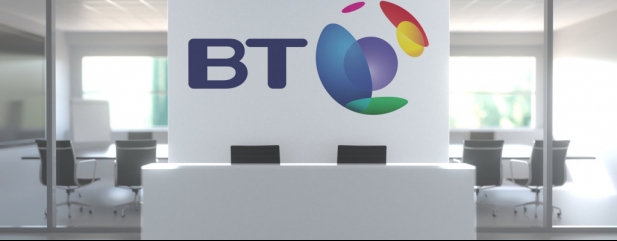Archived article
Please note that tax, investment, pension and ISA rules can change and the information and any views contained in this article may now be inaccurate.
BT takeover hopes shot down by analysts

Analysts believe any takeover interest in BT (BT.A) is likely to be doomed by a series of effective poison pills, including regulation, massive capital expenditure commitments and a yawning pension scheme black hole.
Speculation emerged last weekend that the UK telecoms giant had engaged bankers at Goldman Sachs to put together an updated takeover defence package as rumours swirled that its battered share price could attract the attentions of either industry or private equity buyers.
The speculation saw shares in the group rise nearly 10% this week to 109.85p, yet the stock remains only fractionally above decade lows of 98p. In early 2016 the shares were changing hands for 485p at their peak. Earlier this year, BT was forced to abandon its dividend until 2022, reducing its appeal to income investors.
The share price slump is believed to have drawn the eye of potential buyers. BT has been mooted as a possible buyout target several times over the past few years, not least because German peer Deutsche Telekom owns a 12% stake in the business, a legacy from its £12.5 billion sale of mobile arm EE to BT in 2015.
Analysts at broker Jefferies admit it is likely that BT is being watched closely because of the perceived gap between the group’s £10.9 billion market cap and the fair value of its Openreach network and other assets. But any deal would face massive obstacles.
‘The future pension funding commitments won’t be known until the triennial review concludes in May 2021, and fibre regulation won’t be finalised until Ofcom reports in the first quarter of 2021,’ says Jefferies.
‘We see a combination of the pension fund, UK infrastructure goals and network security as a difficult series of hoops for a buyout consortium to jump through,’ says JP Morgan.
Barclays’ analysts point out that even at the current depressed valuation, once adjustments are made for areas like the pension scheme, mobile spectrum investment and fibre network capex, BT trades broadly in line with peers on most free cash flow metrics, and there is no dividend support.
In June analysts shot down previous takeover rumours after speculation that the Saudi-backed Public Investment Fund (PIF) was thought to be quietly building a stake in the UK telecoms giant. PIF was thought to have been buying slugs of BT stock, although any stake remains below the 3% of the company threshold which would mean having to announce details to the market.
We can’t rule out a bid near-term, but an offer would appear highly unlikely until there is more clarity around its pension funding commitments and the value creation opportunity from national fibre roll-out and 5G networks.
Important information:
These articles are provided by Shares magazine which is published by AJ Bell Media, a part of AJ Bell. Shares is not written by AJ Bell.
Shares is provided for your general information and use and is not a personal recommendation to invest. It is not intended to be relied upon by you in making or not making any investment decisions. The investments referred to in these articles will not be suitable for all investors. If in doubt please seek appropriate independent financial advice.
Investors acting on the information in these articles do so at their own risk and AJ Bell Media and its staff do not accept liability for losses suffered by investors as a result of their investment decisions.
Issue contents
Editor's View
Feature
Great Ideas
News
- BT takeover hopes shot down by analysts
- Balfour Beatty's £2bn contract win fails to move its shares
- BlackRock World Mining’s ’decade of lost returns’
- Analysts say Greencoat Renewables cannot justify premium rating
- M&A revival predicted after worst first-half for deals since 2010
- Investor hopes raised over Covid treatments

 magazine
magazine









